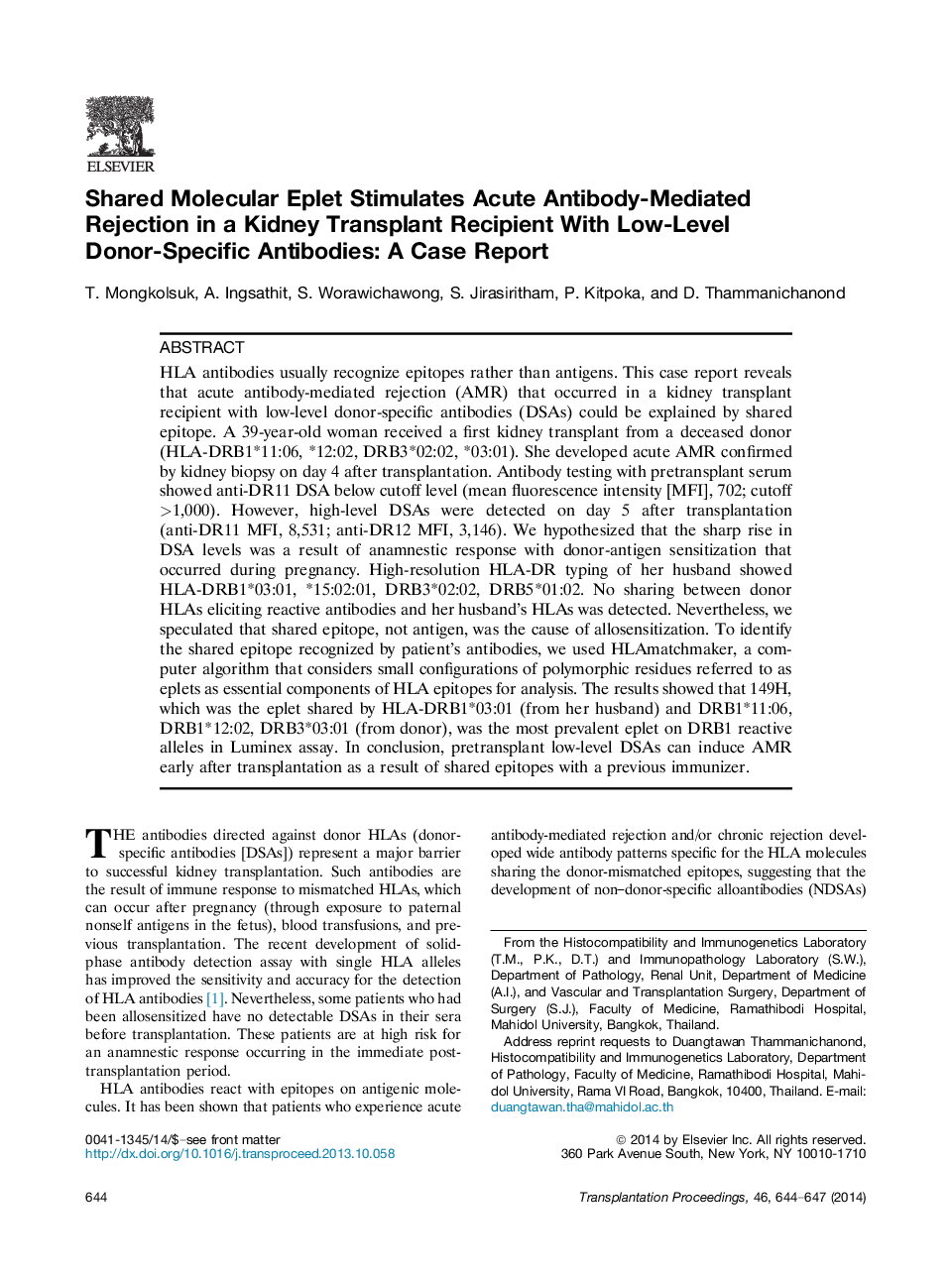| Article ID | Journal | Published Year | Pages | File Type |
|---|---|---|---|---|
| 4258806 | Transplantation Proceedings | 2014 | 4 Pages |
HLA antibodies usually recognize epitopes rather than antigens. This case report reveals that acute antibody-mediated rejection (AMR) that occurred in a kidney transplant recipient with low-level donor-specific antibodies (DSAs) could be explained by shared epitope. A 39-year-old woman received a first kidney transplant from a deceased donor (HLA-DRB1*11:06, *12:02, DRB3*02:02, *03:01). She developed acute AMR confirmed by kidney biopsy on day 4 after transplantation. Antibody testing with pretransplant serum showed anti-DR11 DSA below cutoff level (mean fluorescence intensity [MFI], 702; cutoff >1,000). However, high-level DSAs were detected on day 5 after transplantation (anti-DR11 MFI, 8,531; anti-DR12 MFI, 3,146). We hypothesized that the sharp rise in DSA levels was a result of anamnestic response with donor-antigen sensitization that occurred during pregnancy. High-resolution HLA-DR typing of her husband showed HLA-DRB1*03:01, *15:02:01, DRB3*02:02, DRB5*01:02. No sharing between donor HLAs eliciting reactive antibodies and her husband's HLAs was detected. Nevertheless, we speculated that shared epitope, not antigen, was the cause of allosensitization. To identify the shared epitope recognized by patient's antibodies, we used HLAmatchmaker, a computer algorithm that considers small configurations of polymorphic residues referred to as eplets as essential components of HLA epitopes for analysis. The results showed that 149H, which was the eplet shared by HLA-DRB1*03:01 (from her husband) and DRB1*11:06, DRB1*12:02, DRB3*03:01 (from donor), was the most prevalent eplet on DRB1 reactive alleles in Luminex assay. In conclusion, pretransplant low-level DSAs can induce AMR early after transplantation as a result of shared epitopes with a previous immunizer.
